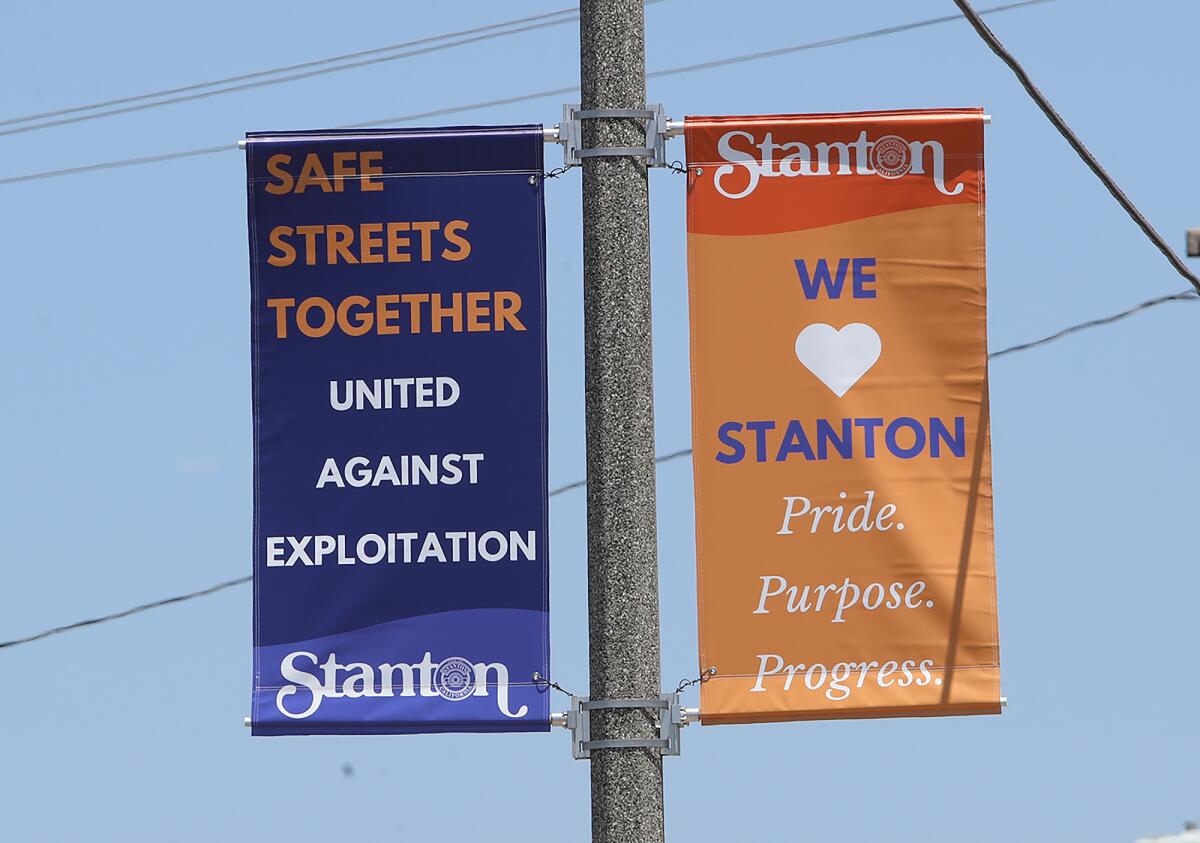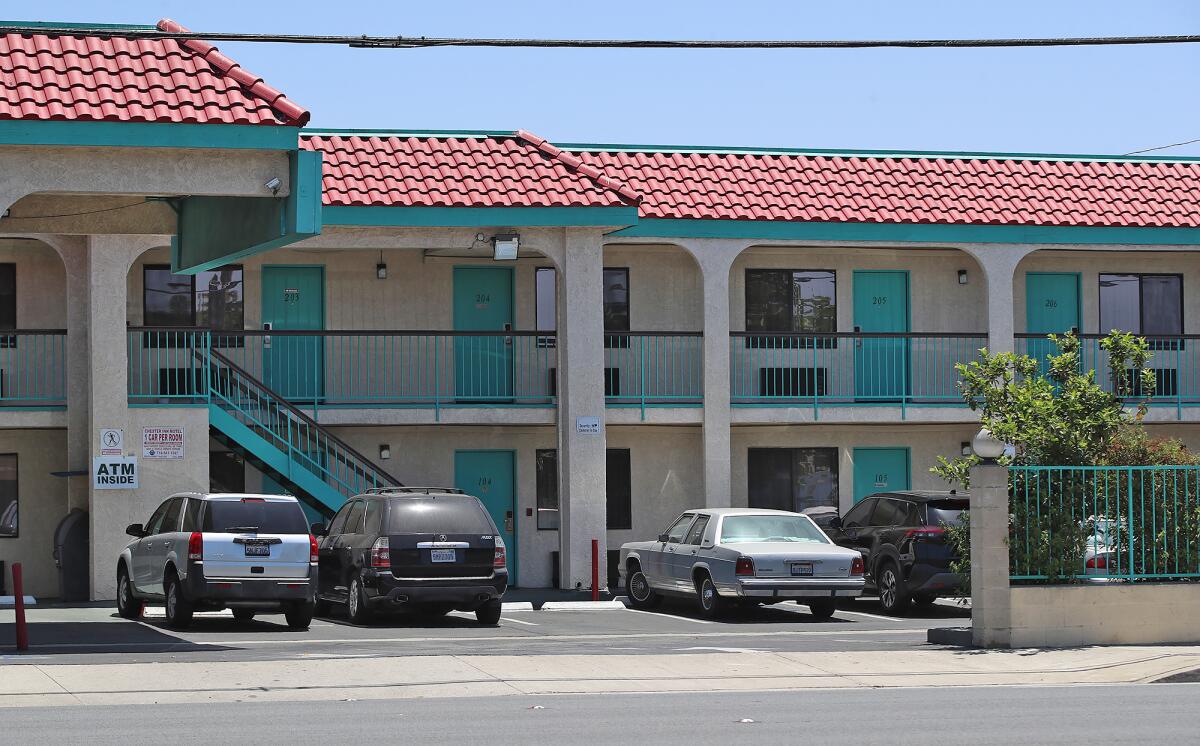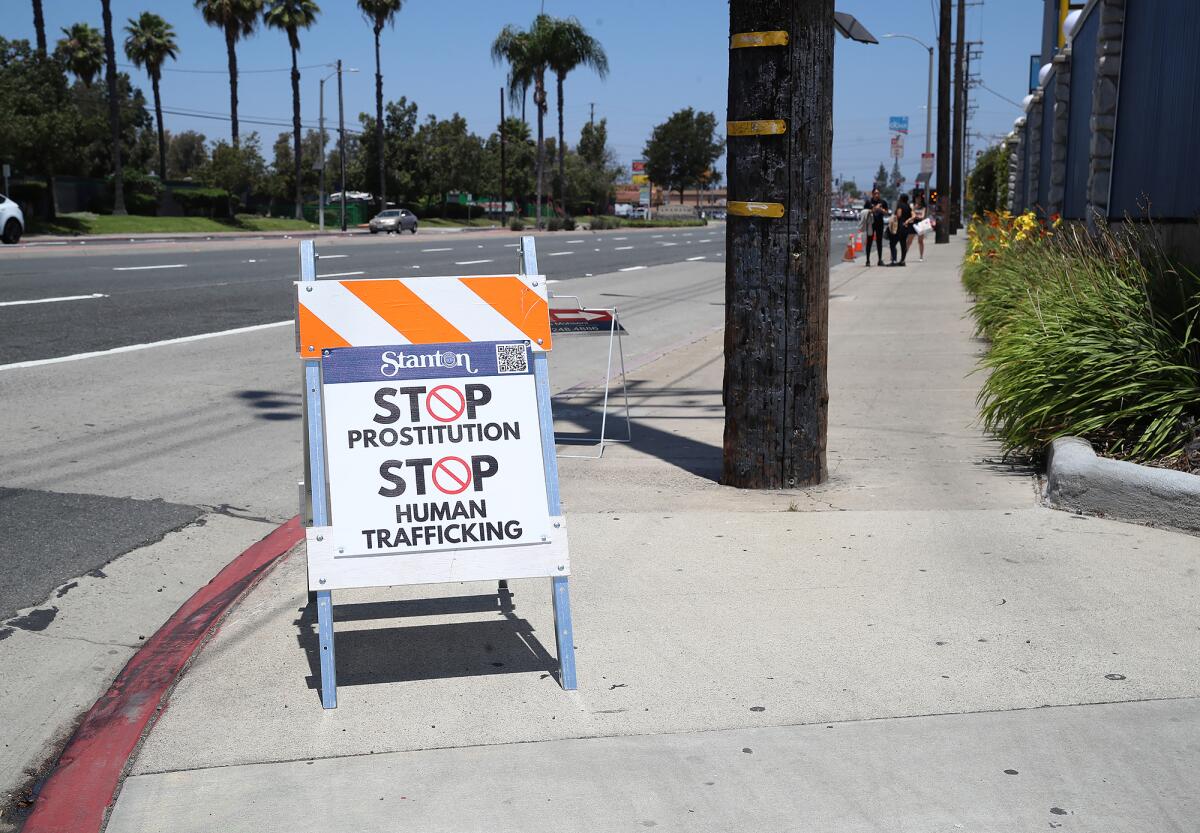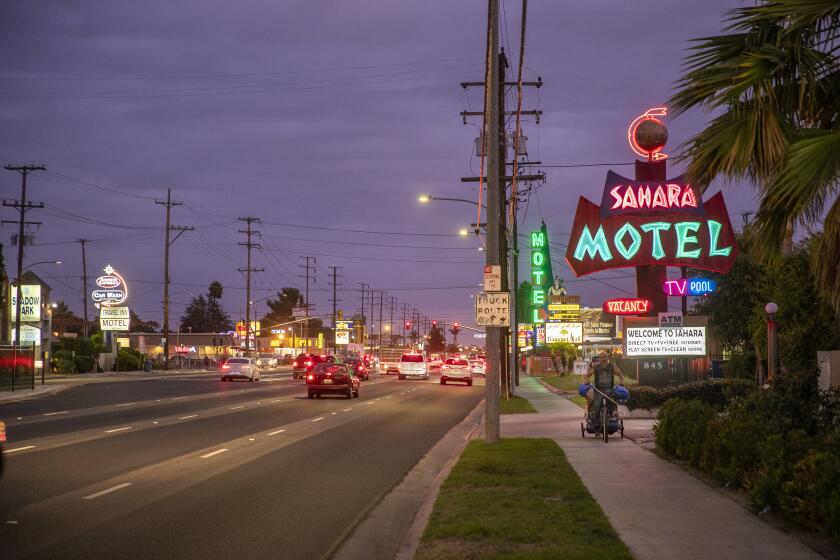Stanton launches ‘Safe Streets Together’ campaign to curb sex trafficking

- Share via
In an effort to discourage sex trafficking, two new solar-powered mobile cameras are going up around “hot spots” in Stanton.
The approach is two-fold, according to city officials.
An around-the-clock recorded livestream will serve as a visual deterrent for potential sex buyers.
But the cameras will also feature an audio recording that, when triggered, will play bilingual messages offering victim support information to sex workers exploited by pimps.
The Stanton City Council approved the camera rentals on Tuesday as an early step toward the city’s official “Safe Streets Together: United Against Exploitation” campaign, which launches in July and is its latest effort to address sex trafficking, mostly along Beach Boulevard.
“We’re trying to provide a lot of visual cues,” Hannah Shin-Heydorn, Stanton’s city manager, told TimesOC. “Our goal is not to be secretive about this. Our community, our residents and businesses are very supportive.”
Beach Boulevard, once Orange County’s ‘Road to Summer,’ is better known in recent years for sex-trafficking and drugs. Now, three cities are pushing to reimagine the historic corridor.
With close proximity to tourist destinations, freeway onramps and a thoroughfare dotted with seedy motels, sex trafficking has plagued Stanton off-and-on since the mid-1980s.
Over the decades, city officials have deployed an array of strategies, from limiting the number of motel room rentals within a 24-hour period to publicly outing sex buyers.
Stanton even passed a public nudity law which targeted, in part, sex workers who advertised certain body parts not covered by skimpy wear with misdemeanor offenses.

The approach seemed to work for three months before sex workers learned how to avoid citation. Even when cited, a judge would hand out a small fine that did little to deter sex trafficking along Beach Boulevard.
“It felt strange and unproductive to be focusing on the supply side,” Shin-Heydorn said. “The prostitutes are the human trafficking victims. They’re part of this vicious cycle and they’re viewed as replaceable by the person making money off of them.”
In the meantime, Sacramento legislators passed the Safer Streets for All Act in 2022, which repealed a law against loitering with the intent to sell sex.
Advocates for the bill argued that law enforcement disproportionately targeted Latino, Black and trans people for loitering violations. Opponents contended that it would remove a critical tool in the fight against sex trafficking.
“There are some unintended consequences with laws that are passed out of Sacramento, where it makes sense for one community or city in terms of how the problem is manifesting there, but it doesn’t always make sense in how it’s been applied to other communities and cities,” Shin-Heydorn explained.

In announcing the Safe Streets Together campaign, Stanton held a town hall on May 29 at City Hall.
City officials detailed a multipronged approach that includes banners that have already been hoisted up on city-owned poles to promote the campaign.
Key side streets off Beach Boulevard are also being targeted for no stopping signs to curb sex acts that often take place after solicitation along the main highway.
Parking restrictions are slated for change to target lots that remain empty long after businesses close and provide a dark corner for similar transactions.
Stanton, which is patrolled by the Orange County Sheriff’s Department, is beefing up overtime hours for deputies to enforce the new rules.
In addition to a new enforcement strategy, the city will distribute postcards with QR codes linking to Waymakers, a nonprofit that offers direct services for sex trafficking victims, and the Orange County Human Trafficking Task Force.
“We’re trying to offer help for those who are interested,” Shin-Heydorn said. “But we’re also sending a message to the purchaser.”
As part of Project Homekey, three former motels along or near Beach Boulevard in Stanton are now permanent supportive housing sites.
Stanton is partnering with the county’s sheriff’s department, district attorney’s office, human trafficking task force and transportation agency in the effort.
It’s also taking a page from Santa Ana’s playbook in partnership with the city. One approach Stanton seeks to emulate is how Santa Ana turned to traffic restrictions during certain hours to target solicitation, which helped curb sex trafficking along Harbor Boulevard.
Readying for its July launch, Stanton’s campaign will also feature lawn signs for residents and businesses.
Meetings are slated to provide updates how the effort is panning out.
Stanton’s short stretch of Beach Boulevard has already made positive strides in recent years through new retail, dining and housing developments, including motel conversions.
Shin-Heydorn believes Stanton residents deserve the best quality of life while addressing sex trafficking in a way that balances enforcement with empathy.
“If individuals are not willing to accept services, they’re not allowed to do illegal things in the city,” she said. “But at the same time, this council and this community has compassion and sympathy for those who are victims.”
All the latest on Orange County from Orange County.
Get our free TimesOC newsletter.
You may occasionally receive promotional content from the Daily Pilot.






